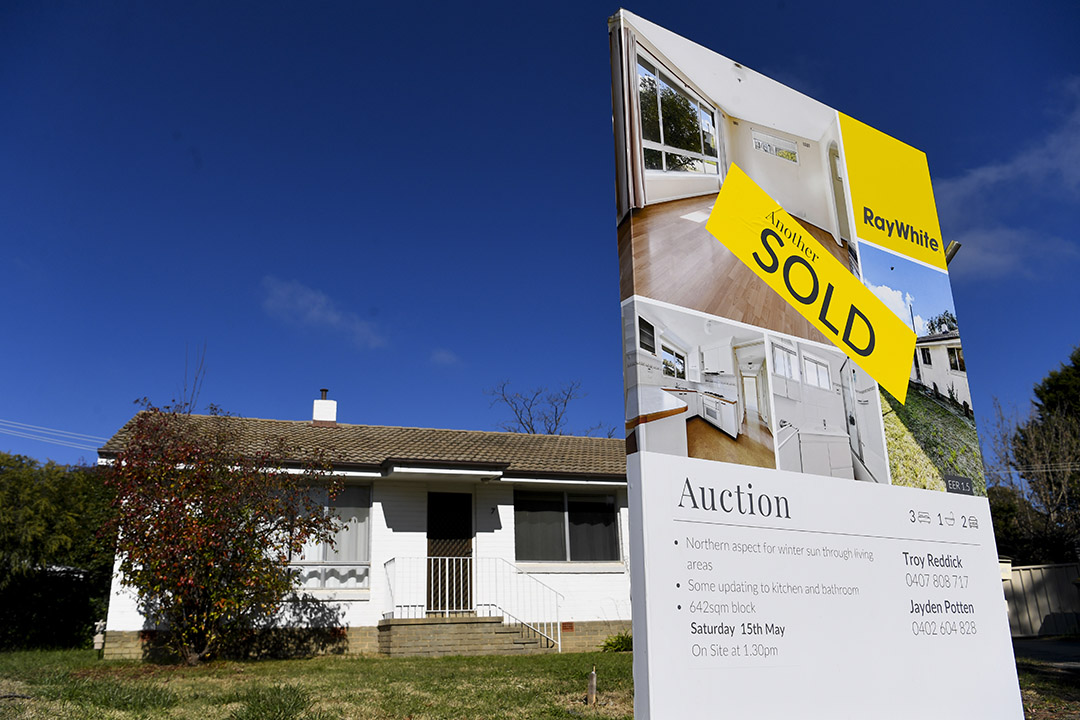

Debate over Australia’s runaway house prices is set to focus on a specific target, with the Greens securing a Senate inquiry into the 50 per cent capital gains tax (CGT) discount that property investors have enjoyed for more than two decades.
This inquiry, which kicks off after a parallel investigation into generational housing inequality wraps up in mid-March, will focus on whether the CGT discount has fuelled property speculation and priced out the next generation of homebuyers. What’s under the microscope is the fundamental question of who benefits from Australia’s tax system, and whether current settings are actually making things worse for renters and would-be first-home buyers.
Since the Howard government introduced the 50% discount on capital gains tax payable for assets (like property) held for over 12 months, housing prices have been on a tear as investors look to cash in. It’s no exaggeration to say that from the early 2000s onward, residential property morphed from a stable savings vehicle into a turbocharged investment class.
Over the last 30 years, national dwelling values have jumped by roughly 382 per cent — about 5.4 per cent compound growth each year since the early 1990s, according to CoreLogic and the Reserve Bank. In the past three decades, the RBA has noted average annual house price growth of more than 7 per cent, though real (inflation-adjusted) growth has tapered in recent years as affordability pressure bites. And the median Australian home now commands north of $1 million, per ABS data for the June quarter 2025.
The CGT discount, bundled with negative gearing, have come under sustained criticism for skewing these outcomes. Both the Australia Institute and Grattan Institute point to evidence that the lion’s share of the benefits flow to wealthier investors, distorting investment decisions, fuelling price surges, and making it even tougher for young Australians to get a foothold in the market.
From the Greens’ point of view, the CGT discount isn’t just a technicality in the tax code—it’s a driving force behind Australia’s housing affordability crisis.
Senator Nick McKim, the party’s economic justice spokesperson, calls it “the most unfair and unequal tax break in the entire Commonwealth tax code, which is super-charging house prices and locking first homebuyers out.”
This isn’t just a debate for economists or tax wonks. Housing affordability is now front and centre for anyone under 40, and increasingly, for policymakers who can no longer ignore the political heat. In plain terms, the cost of buying a home has soared well beyond wage growth, with national median dwelling values now topping the million-dollar mark. The dream of home ownership is drifting further out of reach for younger Australians.
That’s why the timing of the newly-won Senate inquiry matters. It’s not happening in a vacuum—it lands as rental pressures intensify, generational divides widen, and public patience with the status quo starts to wear thin. For investors, it’s a reminder that the policy winds around property can shift, and not always in their favour.
The scope of this Senate inquiry is wide, but the focus is laser-sharp: tax settings and their role in the housing equation. First on the agenda is the sheer size and distribution of tax breaks tied to the CGT discount. The committee will scrutinise recent Parliamentary Budget Office analysis on how much revenue is forgone each year (billions, by most estimates) and who’s pocketing the most from it.
Then there’s the intersection with negative gearing, another hot-button policy that, combined with the CGT discount, shapes investor behaviour. The inquiry will look at how these settings influence housing investment, where the capital flows, and the knock-on effects for housing supply. Is the system genuinely encouraging investment in new housing stock, or just amplifying bidding wars for existing homes?
A critical question: is there a link between tax incentives and house-price inflation, particularly in hot capital-city markets and regional boom towns? The committee will test whether these policies are distorting markets, pushing up prices, and locking out first-home buyers.
Reform is on the table. The inquiry will examine potential changes—lowering the CGT discount, applying new conditions, or re-targeting concessions toward new-builds or longer-term ownership. The broader ambition is clear: to shape a fairer tax system that gives younger and aspiring homeowners a fighting chance.
But there’s a wider social lens too. The inquiry will probe how these tax policies link to intergenerational divides—not just in home ownership, but also in renting, homelessness, and the level of public investment in social housing.